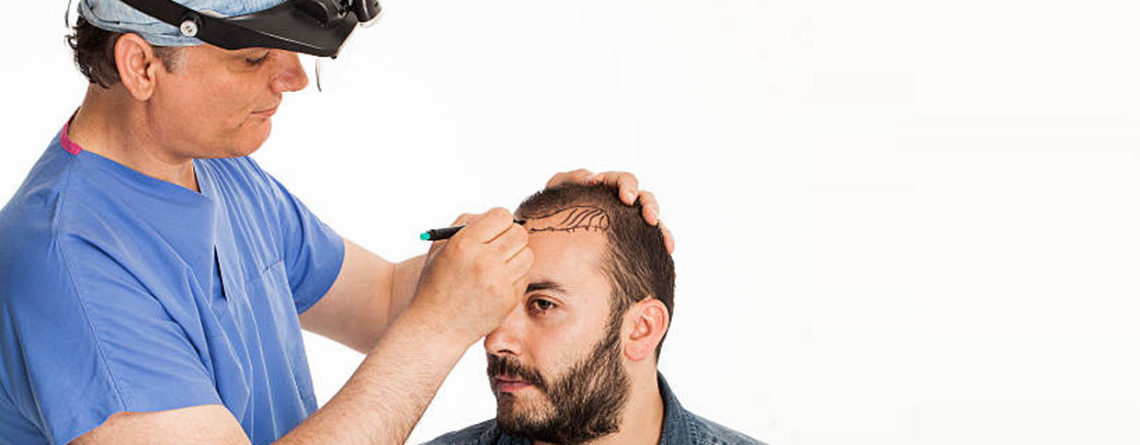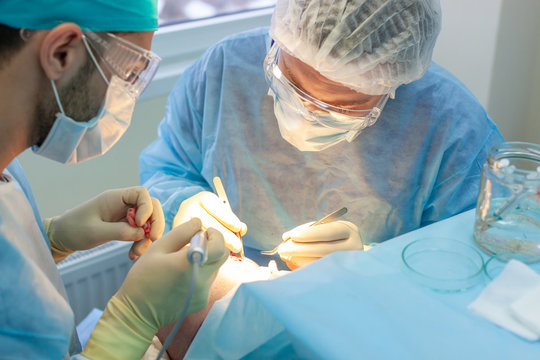Are you considering a hair transplant? Have you already undergone the procedure and are wondering how to ensure optimal results? Regardless of where you are in your hair restoration journey, one crucial factor that can affect your outcomes is getting the right vitamins. While post-transplant care may vary from person to person, there’s no denying that certain nutrients can boost healing and promote healthy hair growth. In this blog post, we’ll explore the essential vitamins that everyone needs after a hair transplant for maximum success. So read on to discover which vitamins should be at the top of your post-op regimen!
Table of Contents
Introduction to Hair Transplant
A hair transplant is a surgical procedure that involves taking hair from one area of the scalp and grafting it onto another area. The most common type of hair transplant is called follicular unit transplantation, which involves taking hair follicles from the back of the head and transplanting them to the balding or thinning areas.
After a hair transplant, it is essential to take care of your scalp and new hair follicles. This means keeping your scalp clean and hydrated, and taking supplements that will help your new hair grow in healthy and strong. In this blog post, we will go over the essential vitamins you need to take after a hair transplant.
What Vitamins Are Essential After a Hair Transplant?
As you probably know, vitamins are essential for almost every bodily function – including hair growth. So, if you’ve just had a hair transplant, it’s important to make sure you’re getting enough of the right vitamins to promote healing and help your new hair grow in strong and healthy.
Here are some of the most important vitamins to take after a hair transplant:
Vitamin A: Vitamin A is essential for cell growth, which is crucial for healing after a hair transplant. It also helps keep your scalp healthy, which can promote better hair growth. You can get vitamin A from foods like sweet potatoes, carrots, dark leafy greens, and eggs.
Vitamin C: Vitamin C is another important vitamin for healing after a hair transplant. It helps your body produce collagen, which is necessary for wound healing. Vitamin C also helps protect your cells from damage and boosts immunity – both of which can help you recover from a hair transplant more quickly. You can get vitamin C from foods like oranges, strawberries, bell peppers, and kale.
Vitamin E: Vitamin E is an antioxidant that helps protect your cells from damage caused by free radicals. Free radicals can slow down healing and cause inflammation, so getting enough vitamin E can help you heal more quickly after a hair transplant. You can get vitamin E from foods like sunflower seeds, almonds, spinach, and avocados.
Benefits of Different Vitamins
Vitamins are essential nutrients that the body needs to function properly. They are found in food and can also be taken as supplements. Vitamins play an important role in many bodily functions, including the regulation of metabolism, assistance with cell growth and repair, and the maintenance of healthy skin and hair.
There are many different types of vitamins, each with its own unique benefits. After a hair transplant, it is important to take vitamins that will support the healing process and promote healthy hair growth. Some specific vitamins that may be beneficial after a hair transplant include vitamin A, vitamin C, and vitamin E.
Vitamin A is essential for cell growth and repair. It helps to keep skin and mucous membranes healthy, which can speed up the healing process after a hair transplant. Vitamin A can be found in foods such as sweet potatoes, carrots, dark leafy greens, eggs, and dairy products. It can also be taken as a supplement.
Vitamin C is an important antioxidant that helps to protect cells from damage. It also aids in collagen production, which is necessary for wound healing. Vitamin C can be found in citrus fruits, tomatoes, bell peppers, broccoli, spinach, and kale. It can also be taken as a supplement.
Vitamin E is another important antioxidant that helps to protect cells from damage and supports collagen production. Vitamin E can be found in nuts, seeds, vegetable oils, wheat germ oil, and leafy green vegetables. It can
 Foods Rich in Nutrients and Vitamins for Hair Growth
Foods Rich in Nutrients and Vitamins for Hair Growth
There are a few key nutrients and vitamins that are essential for hair growth after a hair transplant. vitamin A, B vitamins (including biotin), vitamin C, vitamin D, and vitamin E. Here are some foods rich in these nutrients and vitamins:
Vitamin A: Sweet potatoes, carrots, dark leafy greens, squash, pumpkin, eggs, cantaloupe, apricots
B vitamins (including biotin): Salmon, whole grains, dark leafy greens, legumes (beans and lentils), nuts and seeds
Vitamin C: Red peppers, oranges, grapefruits, broccoli, Brussels sprouts, kale
Vitamin D: Sunshine! Eggs yolks, mushrooms exposed to ultraviolet light
Vitamin E: Sunflower seeds, almonds hazelnuts
A healthy diet is always important for our overall health and well-being but it becomes even more important after a hair transplant. The surgery puts stress on the body and depletes it of nutrients so it’s essential to replenish those stores by eating nutrient-rich foods. The vitamins listed above are all critical for hair growth so make sure to include them in your diet in the weeks and months following your surgery.
Side Effects of Taking Too Many Vitamins
There are a few side effects that may occur if you take too many vitamins after a hair transplant. These include:
• Diarrhea: This is the most common side effect of taking too many vitamins. It can be caused by the body trying to get rid of excess vitamins through the stool.
• Nausea and vomiting: These can also be caused by the body getting rid of excess vitamins.
• Headaches: Headaches may occur if you take too many vitamins, especially if you’re not used to taking them. This is because your body isn’t used to the increased levels of vitamins in your system.
• dizziness: Dizziness can occur if you take too many vitamins, especially if you stand up too quickly after taking them. This is because your blood pressure may drop when you stand up, causing you to feel lightheaded or dizzy.
Ways to Make Sure You Get All the Essential Vitamins and Nutrients You Need
There are a few things you can do to make sure you’re getting all the essential vitamins and nutrients you need after a hair transplant. First, eat a well-balanced diet that includes plenty of fresh fruits and vegetables. It’s also important to get enough protein, which you can get from lean meats, fish, eggs, and tofu. If you’re not getting enough of these nutrients from your diet, consider taking a daily multivitamin or supplementing with specific vitamins like vitamin C, biotin, and iron.
In addition to eating a healthy diet and taking supplements, make sure you’re drinking plenty of water. Water helps your body absorb nutrients and flush out toxins. Aim for eight glasses of water per day. Lastly, exercise regularly and reduce stress as much as possible. Stress can lead to hair loss, so it’s important to keep it under control.
Conclusion
Supplements and vitamins are an essential part of any hair transplant recovery plan. They can help support the health of your scalp and encourage new hair growth in the transplanted area. Not all supplements are created equal, so make sure to do your research before choosing a supplement to add to your post-transplant routine. Vitamins like biotin, zinc, vitamin E, and iron can provide important benefits for those looking to optimize their results after a hair transplant – so don’t forget them!

